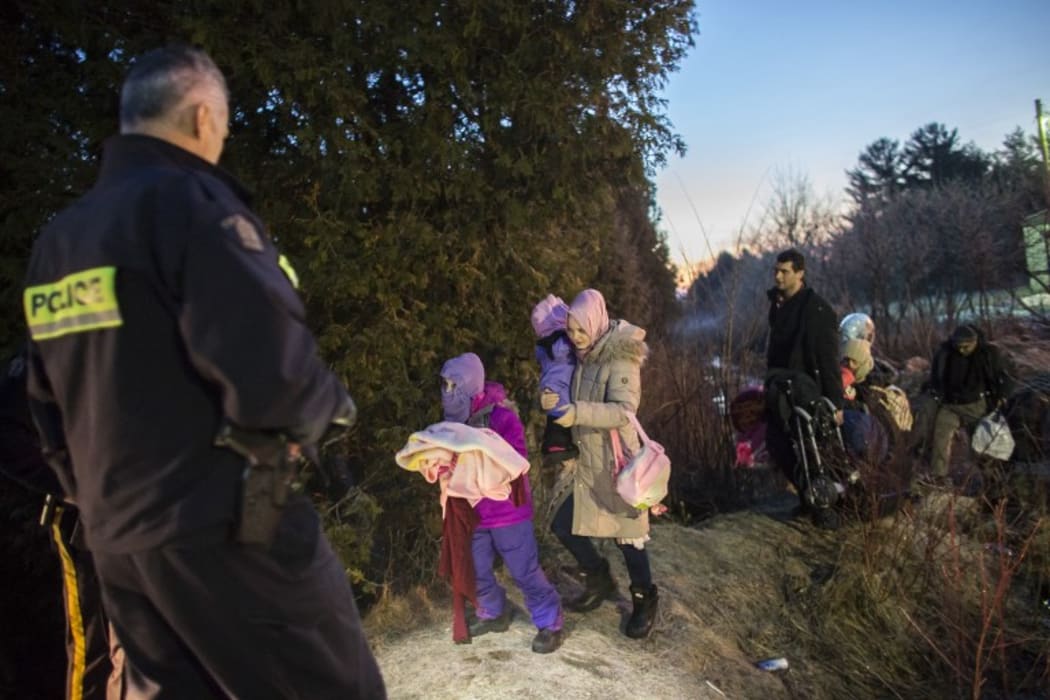Hundreds of people are risking life and limb by crossing into Canada from the US in freezing temperatures.
Most are refugees who fear they will be returned to their homelands under Donald Trump’s administration.
And according to a reporter in Canada, the number is on the rise.

RCMP officers look on as an extended family of seven people from Turkey illegally cross the US-Canada border. Photo: AFP
CBC reporter Karen Pauls, who is based in Winnipeg, told Morning Report dozens of people are coming across the border every weekend, despite temperatures of -20°C.
She says it's relatively easy to cross at the local Emmerson border, but there are cameras and authorities could technically turn people back.
Some people are opting to cross through farmers’ fields, as Ms Pauls says there’s less chance they will be intercepted.
But that can mean miles on either side of the crossing before they reach a community, she says.
“Those are thigh deep in snow, and during the night, when it’s dark and the wind is howling, we’ve heard of people walking for 22 hours, getting lost, not knowing where they are, losing hats and gloves and suffering hypothermia.”
Two Ghanaian men lost all of their fingers to frost bite during a crossing on Christmas Eve.
“It’s a scary proposition but people are so desperate that they’re willing to take those risks.”
In 2013, 68 people entered Canada at the Emmerson border crossing ‘irregularly’, meaning they did not go through the proper point of entry.
Last year it was more than 400, with a sharp rise after the US Presidential Election in November.
Ms Pauls says so far this year there have been more than 140 people cross, including children and babies who have been carried across.
“We’ve noticed this has been happening in small numbers for years, but the election really created a lot of fear for people and we’re seeing those numbers increase.”
As the weather warms up, Ms Pauls says even more people are expected to make the journey.
As soon as people step over the border, they’re protected by international conventions, she says.

